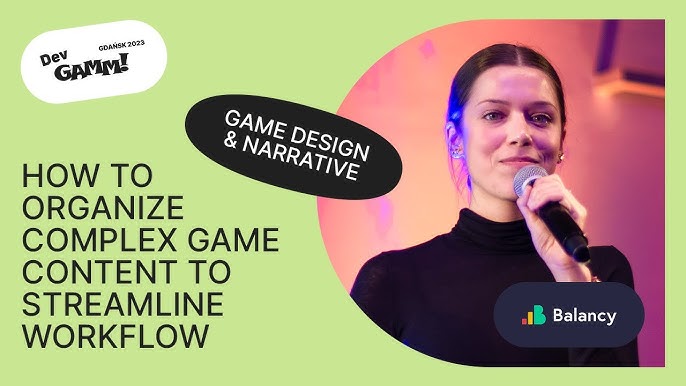Check out this video from Balancy’s participation in the DevGAMM event in Gdansk.
In the video, Julia Iljuk, Head of Growth, delivers a lecture on organizing complex in-game content to streamline the workflow of game designers and programmers:
Quick summary of the lecture:
Working with certain types of data in spreadsheets is challenging. Spells, quests, items in survival games easily turn your spreadsheets into massive tables, which are hard to navigate and absolutely impossible to change remotely.
Julia introduces three commonly used approaches to working with game content: Huge Tables, Inheritance, and Composition.
- While Huge Tables are widely used, they become cumbersome and unreadable as the list of items expands.
- Inheritance, although a useful programming concept, falls short when dealing with item systems that require inheritance from multiple sources simultaneously.
- The lecture highlights Composition as the optimal solution. Similar to building with LEGO bricks, Composition involves creating independent components that can be combined to create spells, items, quests, and more. The advantages of Composition include scalability, improved readability, and a reduced likelihood of human error.
By adopting Composition (the approach used in the Balancy platform), game designers and engineers can streamline their workflow, ensuring efficient development and easy code maintenance.


Be sure to watch the video to gain a deeper understanding of why Composition is a superior approach in organizing complex in-game content and what advantage it can give your team.
